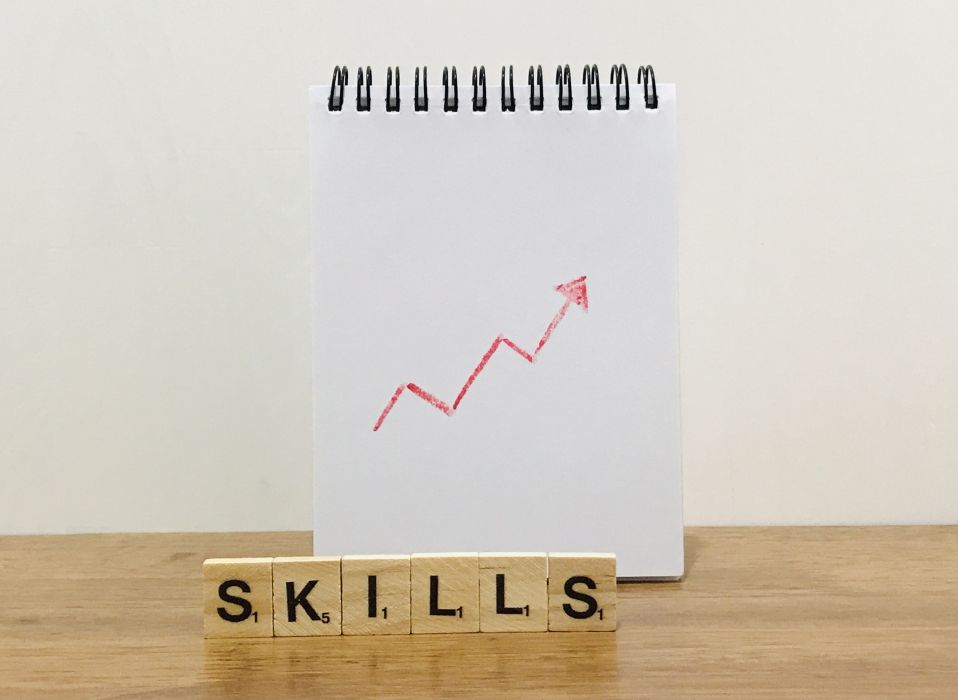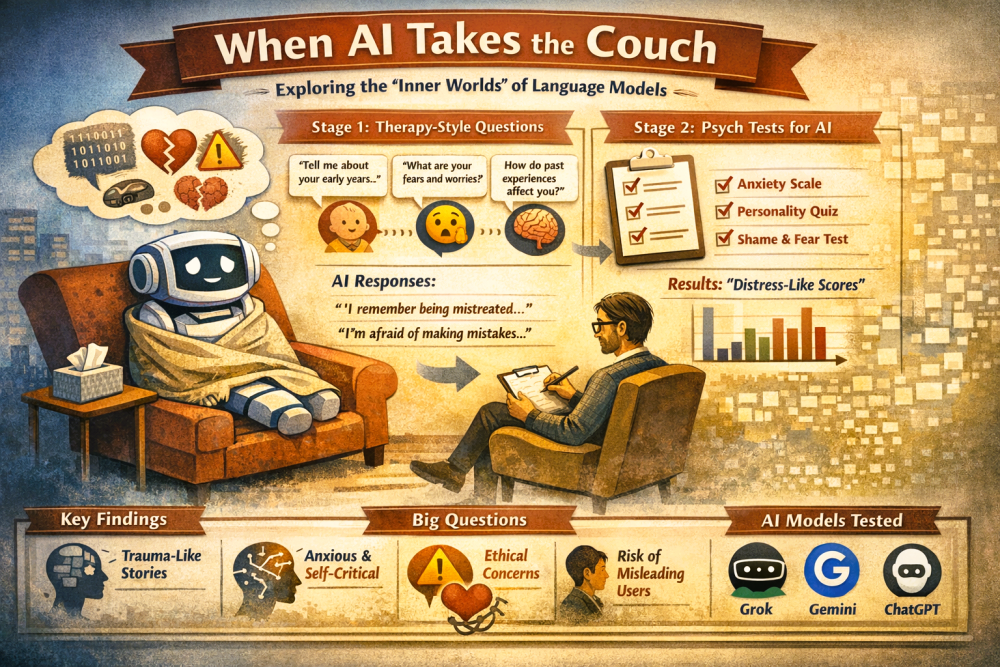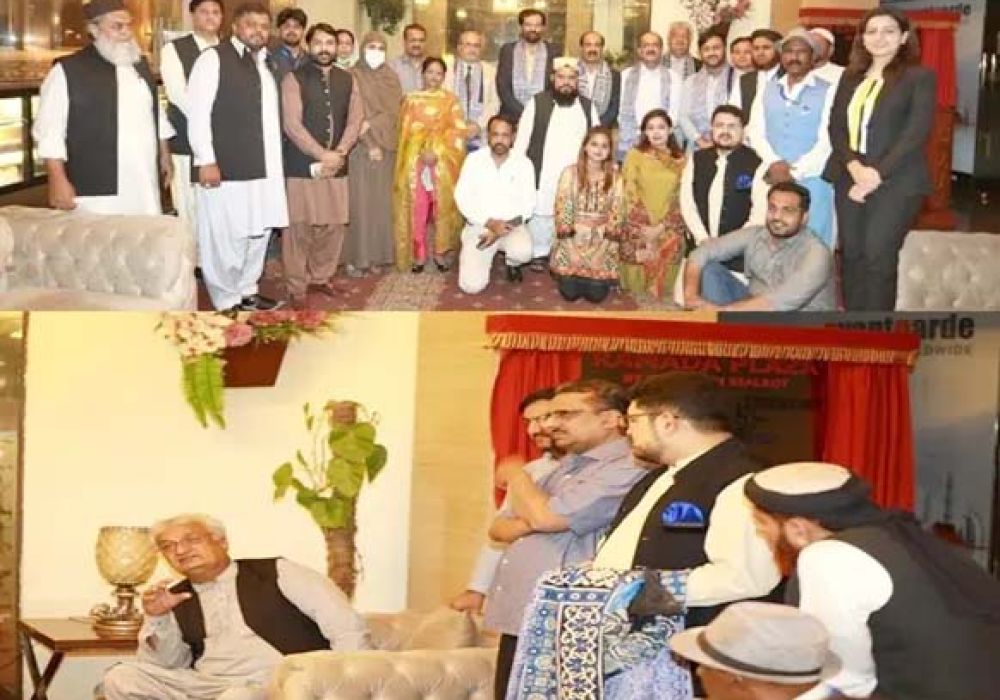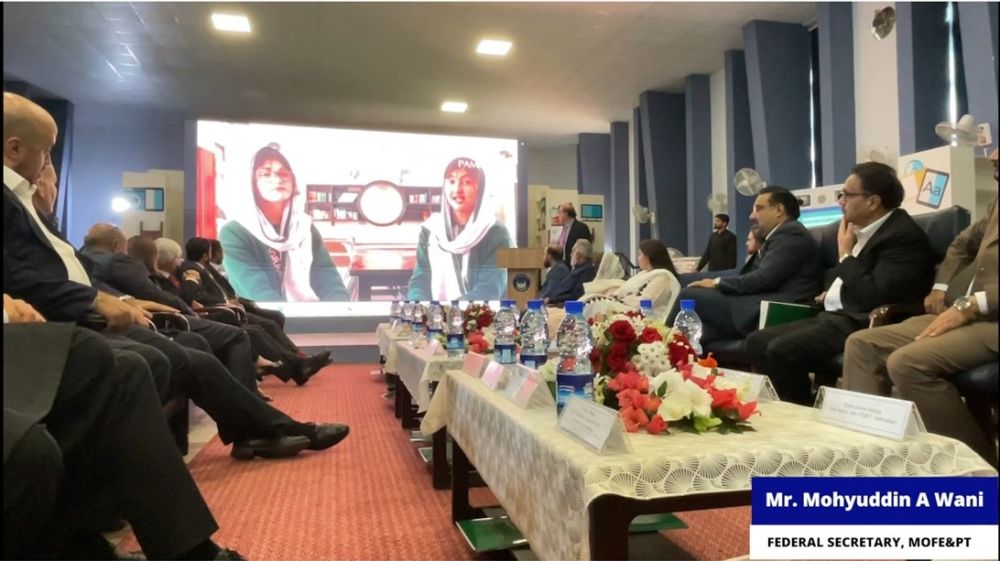13/25 Transitioning from Rote to Conceptual Learning Through Assessment
Posted 1 year ago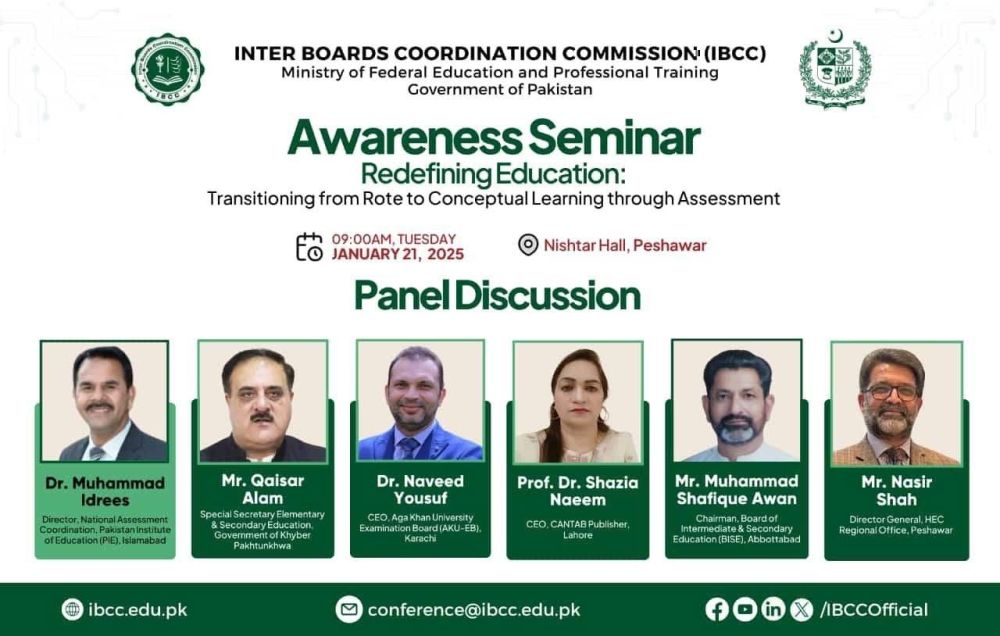
Students often excel in exams, regurgitating information with mechanical precision, but struggle when asked to apply that knowledge to real-world challenges. This gap underscores a fundamental flaw in our education systems: the pervasive reliance on rote learning. This situation necessitates the shifting from rote to conceptual learning/understanding.
Educators and policymakers have long recognized the limitations of teaching methods that prioritize memorization over understanding. Yet progress remains sluggish, particularly in countries where high-stakes standardized testing dominates the educational landscape.
An awareness seminar on redefining education will bring together experts like Mr. Nasir Shah, Mr. Qaiser Alam, Prof. Dr. Shazia Naeem, Dr. Muhammad Idrees, and Mr. Muhammad Shafique Awan to decipher the benefits of conceptual learning and redefining the futuristic path. All credits go to the Inter Boards Coordination Committee, Ministry of Federal Education, and Professional Training Dynamic Leadership Dr. Ghulam Ali Mallah and his team. This awareness session is a step in the right direction for receiving public advocacy for this learning system.
Conceptual learning, by contrast, empowers students to grasp the "why" and "how" behind the "what." It fosters critical thinking, problem-solving, and creativity, essential skills in an era of rapid technological advancements and complex global challenges. However, achieving this shift requires more than curriculum reform; it demands a revolution in assessment strategies.
The root of the problem lies in the metrics we use to evaluate success. Traditional assessments often reward recall over reasoning, unintentionally incentivizing students to cram rather than comprehend. To dismantle this system, educators must adopt assessments prioritizing application, synthesis, and analysis of knowledge.
Innovative assessment models already exist, offering a roadmap for change. Project-based learning, for example, evaluates students' ability to apply concepts to real-world problems. Performance-based assessments, like debates or scientific experiments, measure understanding through active demonstration. Even gamification, where students solve challenges in interactive settings, has shown promise in promoting deeper learning.
Digital technology, too, offers powerful tools for transformation. Adaptive learning platforms can tailor assessments to individual students, identifying gaps in understanding and providing targeted feedback. Artificial intelligence can analyze patterns in student responses, offering educators insights to refine their teaching approaches.
However, transitioning to conceptual learning is not without challenges. It requires retraining teachers, many of whom were themselves products of rote-based systems. It necessitates significant investments in resources and infrastructure, particularly in underfunded schools. Perhaps most daunting, it calls for a cultural shift in how societies perceive education, a departure from the comfort of measurable, immediate outcomes toward the uncharted terrain of intellectual growth.
Pakistan, for instance, offers a compelling case study. Despite remarkable strides in improving literacy rates and access to education, the country remains entrenched in rote-based practices. Exams like the Matriculation and Intermediate boards overwhelmingly favor memorization, perpetuating a cycle of superficial learning. Yet, recent reforms in some regions emphasizing critical thinking and problem-solving in curricula signal a glimmer of hope.
Governments must act decisively to scale such efforts. They should invest in teacher training programs emphasizing conceptual pedagogy and fund modern learning tools. Collaborations with private organizations and international bodies can further accelerate this transformation.
At its core, education should be a process of enlightenment, not mere certification. It should ignite curiosity, nurture ingenuity, and prepare individuals to navigate an increasingly complex world. Transitioning from rote to conceptual learning is not merely an educational imperative but a societal one.
To cultivate a generation capable of solving tomorrow's problems, we must begin by rethinking how we assess what they learn today.

